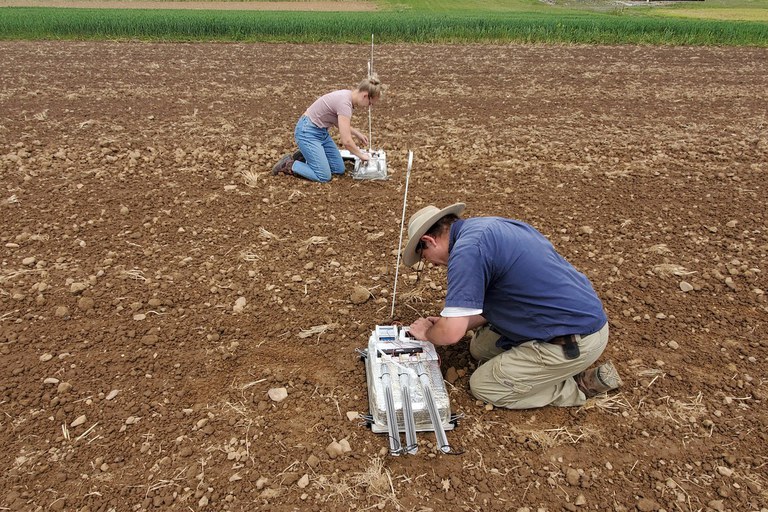Innovative cover crop strategies can help organic growers minimize greenhouse gas leaks.
Problem
How can growers help to reduce potent greenhouse gas (GHG) emissions that may result from organic agriculture practices?
- Organic agriculture relies on microbial cycling of nutrient inputs from legume cover crops and applications of animal manure, a combination of practices that can curtail nutrient runoff and soil erosion but at the same time release nitrous oxide.
- Nitrous oxide is a greenhouse gas that is about 300 times better at trapping heat than carbon dioxide.
Findings
Researchers measured soil nitrous oxide emissions for two growing seasons in four corn-soybean-winter grain rotations, with tillage, cover crop, and manure-management variations typical of North American organic agriculture.
- They found a significant "leak" from the combination of nitrogen inputs from the cover crops and the manure prior to corn planting due to the soil's inability to hold nitrous oxide and convert it to harmless nitrogen before escaping to the atmosphere.
Impact
As a result of their findings, the researchers proposed several strategies to reduce those unintended consequences, including removing a fraction of the cover crop's aboveground biomass before corn planting. By preventing the co-location of fresh biomass and manure they decreased nitrous oxide emissions by 60 percent.
Research Credit
Team
- Debasish Saha, Jason Kaye, Arnab Bhowmik, Mary Ann Bruns, John Wallace, Armen Kemanian
Participating Departments
Competitive Funding
- USDA NIFA (Organic Transitions)
- USDA NIFA (AFRI)
Federal and State Appropriations
- USDA NIFA Hatch Project PEN04571, Accession #1003346
Emerging Discoveries
Published Research
Organic fertility inputs synergistically increase denitrification-derived nitrous oxide emissions in agroecosystems
-
Saha, D., Kaye, J. P., Bhowmik, A., Bruns, M. A., Wallace, J. M., & Kemanian, A. R. (2021). Organic fertility inputs synergistically increase denitrification-derived nitrous oxide emissions in agroecosystems. Ecological Applications, 31(7), [e02403]. https://doi.org/10.1002/eap.2403
Office for Research and Graduate Education
Address
217 Agricultural Administration BuildingUniversity Park, PA 16802-2600
- Email agresearch@psu.edu
- Office 814-865-3136
Office for Research and Graduate Education
Address
217 Agricultural Administration BuildingUniversity Park, PA 16802-2600
- Email agresearch@psu.edu
- Office 814-865-3136



